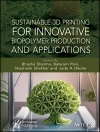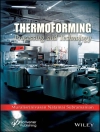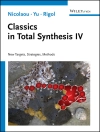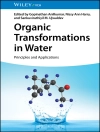Sets forth the analytical tools needed to solve key problems
in organic chemistry
With its acclaimed decision-based approach, Electron Flow in
Organic Chemistry enables readers to develop the essential
critical thinking skills needed to analyze and solve problems in
organic chemistry, from the simple to complex. The author breaks
down common mechanistic organic processes into their basic units to
explain the core electron flow pathways that underlie these
processes. Moreover, the text stresses the use of analytical tools
such as flow charts, correlation matrices, and energy surfaces to
enable readers new to organic chemistry to grasp the fundamentals
at a much deeper level.
This Second Edition of Electron Flow in Organic
Chemistry has been thoroughly revised, reorganized, and
streamlined in response to feedback from both students and
instructors. Readers will find more flowcharts, correlation
matrices, and algorithms that illustrate key decision-making
processes step by step. There are new examples from the field of
biochemistry, making the text more relevant to a broader range of
readers in chemistry, biology, and medicine. This edition also
offers three new chapters:
* Proton transfer and the principles of stability
* Important reaction archetypes
* Qualitative molecular orbital theory and pericyclic
reactions
The text’s appendix features a variety of helpful tools,
including a general bibliography, quick-reference charts and
tables, pathway summaries, and a major decisions guide.
With its emphasis on logical processes rather than memorization
to solve mechanistic problems, this text gives readers a solid
foundation to approach and solve any problem in organic
chemistry.
Über den Autor
PAUL H. SCUDDER, Ph D, is Chair of the Division of Natural
Sciences and Professor of Chemistry at New College of Florida. Dr.
Scudder has been teaching organic chemistry and advanced organic
chemistry at the undergraduate level for thirty-four years. His
current research focuses on physical organic chemistry,
specifically reaction mechanisms and theory.












